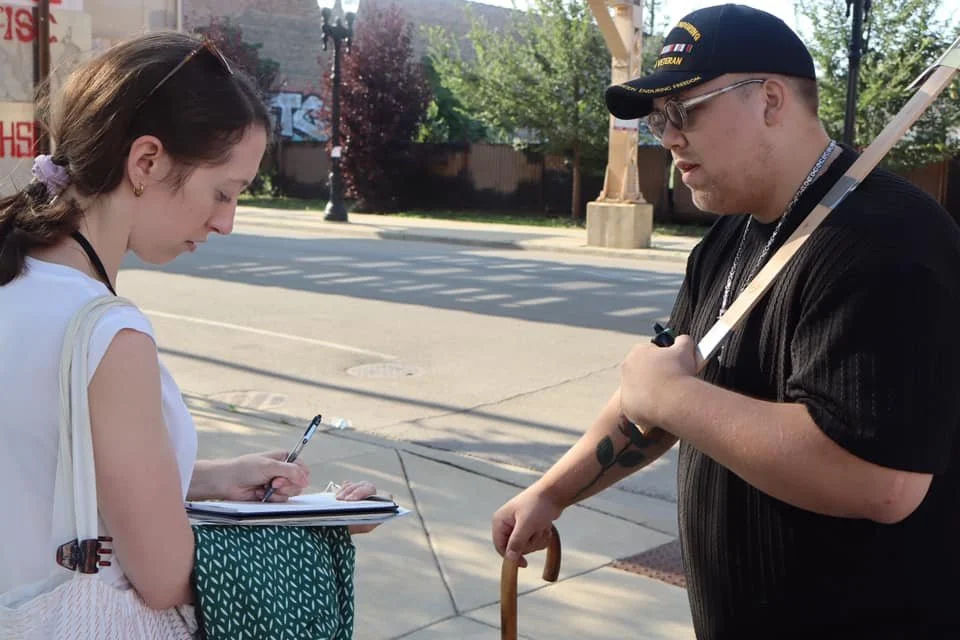Getting Me Cheap - An Urgently Compelling Read
“For your kids, you just figure out how to make things work.” (Freeman and Dodson, page 87)
There’s nothing more precious to a mother than making sure her child is safe and healthy. These are almost the most basic requirements of being a good mother. But what happens when everyday is a struggle to ensure these requirements are met? What happens when, in order to ensure the safety and health of your child, you have to put them in an unsafe position?
Getting Me Cheap exposes how the American system has trapped millions of women and children into a cycle of poverty and exploitation. After years of field work and a series of in-depth interviews, Amanda Freeman and Lisa Dodson tell us what it’s like to be a low-wage working woman in America.
The book describes how when talking about their struggles affluent working moms often added a postscript: “I can’t imagine how hard it is for low-income or single moms.” (Freeman and Dodson, page 202). The authors have depicted a stark comparison between affluent and working class moms. Only women of a certain economic class have the ‘choice’ to decide between work and family – but for poor women, working daily is their only means of survival.
Even modern feminism fails to recognise the struggles of these low-wage mothers. Only the struggles of the affluent working women’s story are part of the narrative, dismissing poverty as a factor. The high price professional women pay to raise their children is recognised, but what about the price low wage women are paying day in and day out?
Even before the pandemic, “70 percent of women in the fast-food industry went to work despite illness.” (Freeman and Dodson, page 47)
In the book, mothers tell us of their daily struggles working low-wage jobs and managing childcare. Unreasonable job demands and inflexible supervisors directly impact how they raise their kids. An altered work schedule may lead to kids being left without care for a while. There is a lack of choice or routine that is forced on low-wage workers which people in stable, well-paid jobs are unable to understand.
“98 percent of daycare centers offer no evening hours and 94 percent no overnight options.” (Freeman and Dodson, page 125)
They have described how they barely get by, with some help from family members, lenient managerial staff or a change in state policies. But in the long run nothing is dependable enough to help them better their lives. These families, sometimes generations of them, are stuck in a system that does not care for their welfare.
These conditions have been further worsened by the pandemic. The reduced number of working hours, loss of jobs, loss of childcare, sudden lockdowns and an impending fear of the unknown has most adversely affected them.
The book offers a clear, however subdued, message - motherhood is the only main source of achievement for the low-wage moms the authors spoke with, because of their limited opportunities and success in other fields. They get creative with their options and look for work schedules that allow them flexibility so they can focus on caring for their children.
“They wanted to be present to get kids off the school bus, supervise homework, and fill the schedules with enriching activities.” (Freeman and Dodson, page 90)
“Ironically, though, even some of the empowerment programs offered by local nonprofits failed to provide childcare during required meetings and functions.” (Freeman and Dodson, page 131)
There are many programs created by various organizations to help working moms in need, but they fail to provide childcare for the duration of those meetings. What’s even more concerning is hearing parents describe receiving assistance from the government as a side job in and of itself. The success of welfare programs is measured by the number of closing cases, no matter the condition in which the family is left. Instances of mothers turning down even a small raise so that there’s not a loss of benefits are common knowledge. It forces you to contemplate the fate of the people who are dependent on such a system for help.
Even though each chapter is loaded with information, it almost feels like a private conversation between the reader and the mothers. Not only that, but the book also offers a way forward to its readers. We are encouraged to fight for better pay, policies and working conditions, and ask authorities if benefits of employment extend to every strata of the workforce, reaching every family.
Amanda and Lisa were both single moms who met at the Sociology Department at Boston College over fifteen years ago.
“If there is no cost to you, then you are not stepping up.” (Freeman and Dodson, page 197)
The authors encourage you to stand up for a struggle that may not be about you, they ask you to take a stand and have uncomfortable conversations and do more than just send out donations. The support has to be personal and direct. One of the suggestions was to help enroll an underprivileged child in a childcare program to allow her mother to get a better job.
The story is one of persistence that dominates the lives of these women who want to help others, grow and do better. Only after reading it can you appreciate the privilege of your life, since a woman who could connect to this book would never have the luxury of time to pick it up. You should read Getting Me Cheap, it will help you understand how poverty and a broken system have harmed the lives of generations of women, and it will help you work towards avoiding perpetuating the issue.
“Many of the moms we met hoped to pursue careers ‘helping people’, often in ways they needed help over the years; they wanted to become people who could change other lives.” (Freeman and Dodson, page 109)





